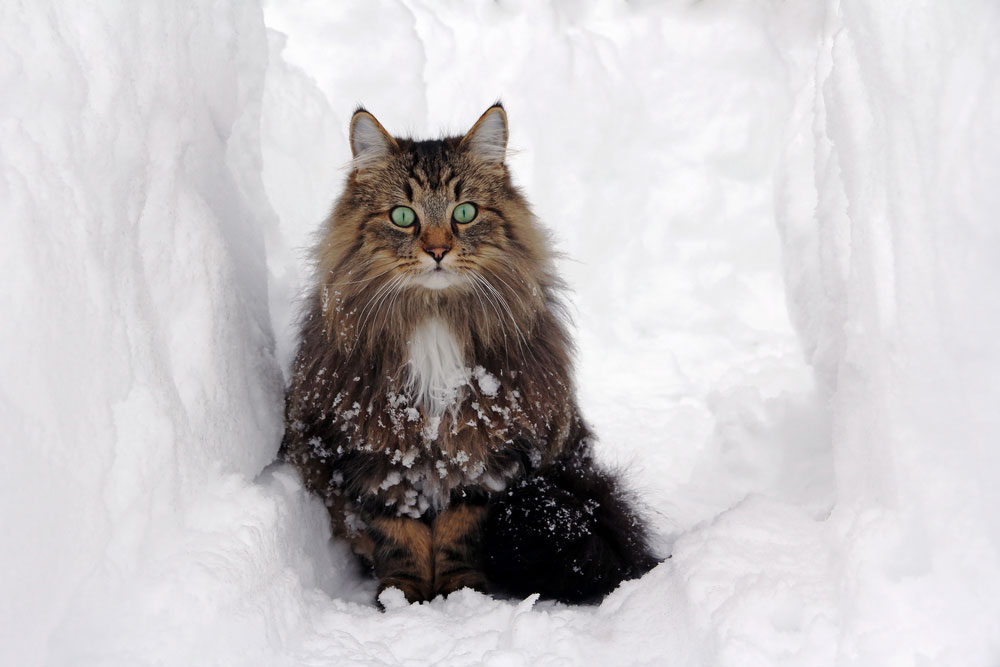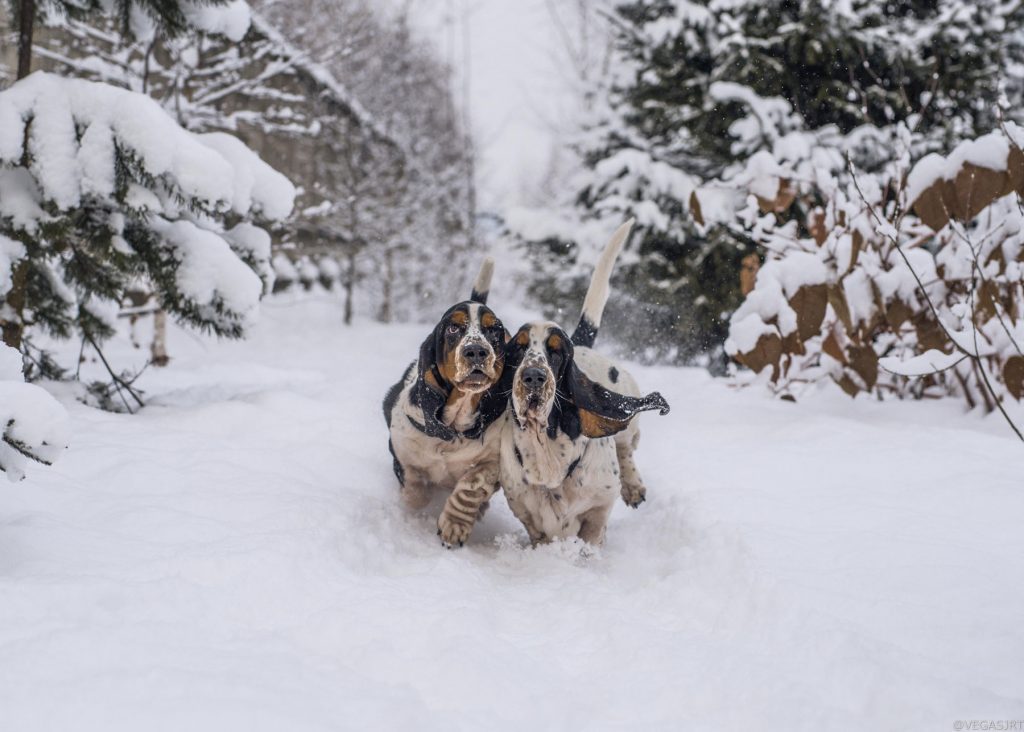Animal Welfare, Natural Pet Health
Top Ten Winter Weather Tips For Pets
Much of the USA is experiencing severe cold currently and we hear there’s also snow in the UK! Well… it is winter, but it is important to remember that when the temperature outside plummets, your pets could be at risk.
Here are our top 10 tips to help keep your pets safe this winter:
- Know your dog’s limits. Some dogs are far more susceptible to the cold than others. Short-coated, thin, elderly, or very young dogs get cold more quickly – so bear this in mind and adjust the amount of time they stay outside. A well-fitting dog coat or sweater is a great way to help keep them warm but remember that if it’s not waterproof it may get wet and make them even colder. Hypothermia and frostbite pose major risks to dogs in winter, so remember, if it is too cold for you, it is probably too cold for your dog!
- Avoid the ice. Be sure to avoid frozen lakes and ponds when walking your dog as they could be seriously hurt or even killed if the ice breaks.
- Check the hood! Cats often sleep in the wheel wells of cars or even crawl into the engine during the winter months to keep warm. Make sure you don’t put kitty at risk by banging loudly on your hood or honking the horn before starting your car. You may startle your cat, but far better than the risk of injury should they be inside when you drive off!
- Check the paws:Check your dog’s paws frequently for signs of cold-weather injury or damage, such as cracked paw pads or bleeding. And make sure you wipe them down as your dog’s paws can pick up all kinds of toxic chemicals during winter walks, such as salt, antifreeze, or de-icers.
- Avoid spills! Antifreeze attracts cats and dogs because it is sweet tasting, but it is extremely poisonous and can cause serious illness or death when ingested. Be sure to clean up any antifreeze that spills in your garage and keep the bottle somewhere your pets cannot access.
- Keep them secure. More pets become lost in the winter than any other season because snowfall can disguise recognizable scents that would normally help them find their way home. Make sure your pet’s collars have up-to-date contact information and that they are microchipped, and help prevent your dog from becoming lost by keeping them leashed on walks.
- Don’t leave your pet in the car. Just as hot cars are dangerous for pets in the summer, cold cars pose a threat as well. Only take your pets in the car if it is necessary, and never leave them unattended.
- Be seen. In winter, many of us have to walk our dogs in the dark, so make sure both you and your dog are safe by wearing reflective gear (clothing, leash, collar, etc) and keeping your dog close when walking on the street.
- Provide shelter. If your pets primarily live outdoors, make sure you bring them indoors during sub-zero temperatures. For the rest of the winter, provide them with a dry, draft-free shelter that is large enough to allow them to sit and lay down comfortably, but small enough to conserve body heat. Remember that pets who spend a lot of time outside will need more food to replace energy lost in trying to keep them warm warm. Use plastic food and water dishes instead of metal – when the temperature is low enough, your pet’s tongue can become stuck to metal.
- Be prepared! It’s always good to have an emergency plan and make sure that this includes your pets! Have an emergency kit with enough food, water, and medication to last your pets at least five days. Hopefully you will never need it, but if you do, you will be thankful you planned ahead.
Stay safe!






